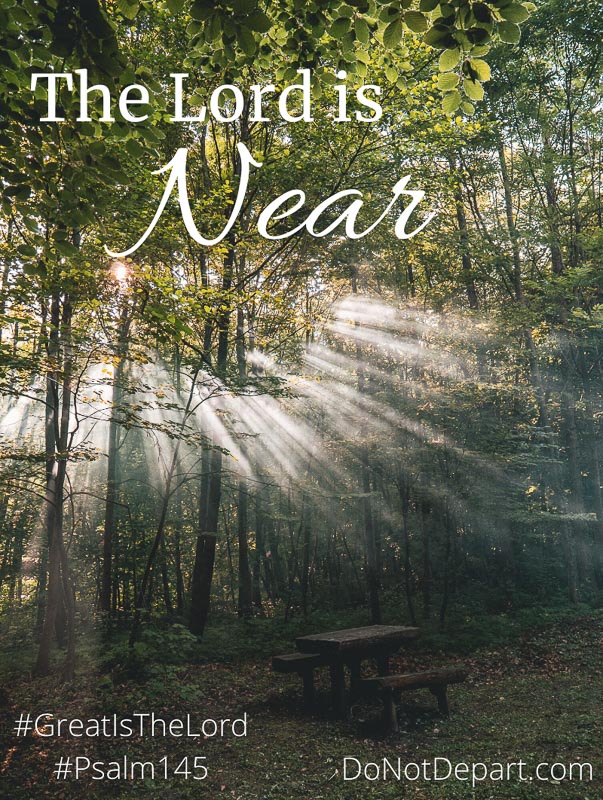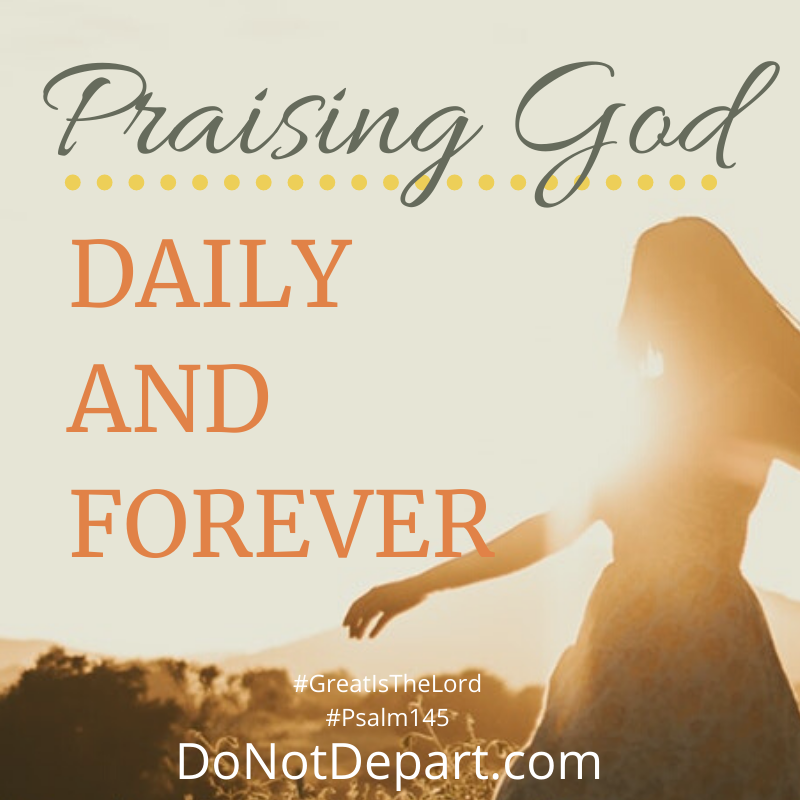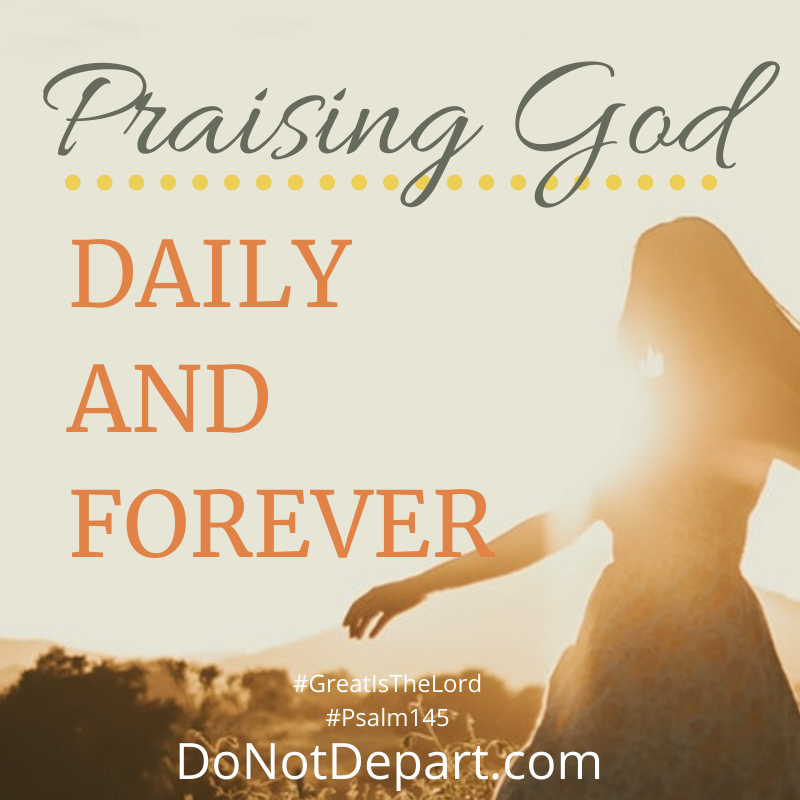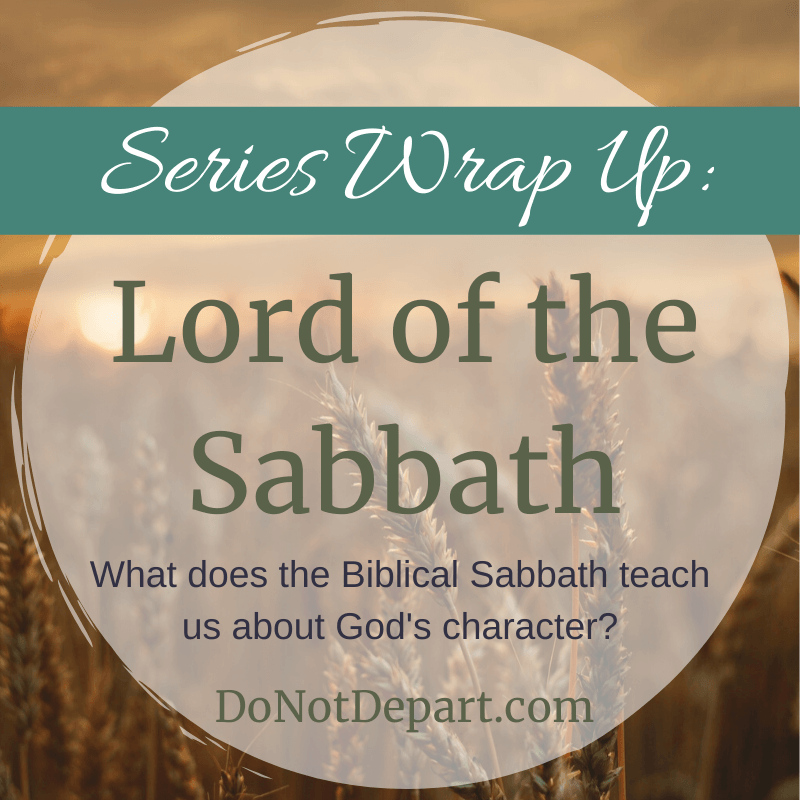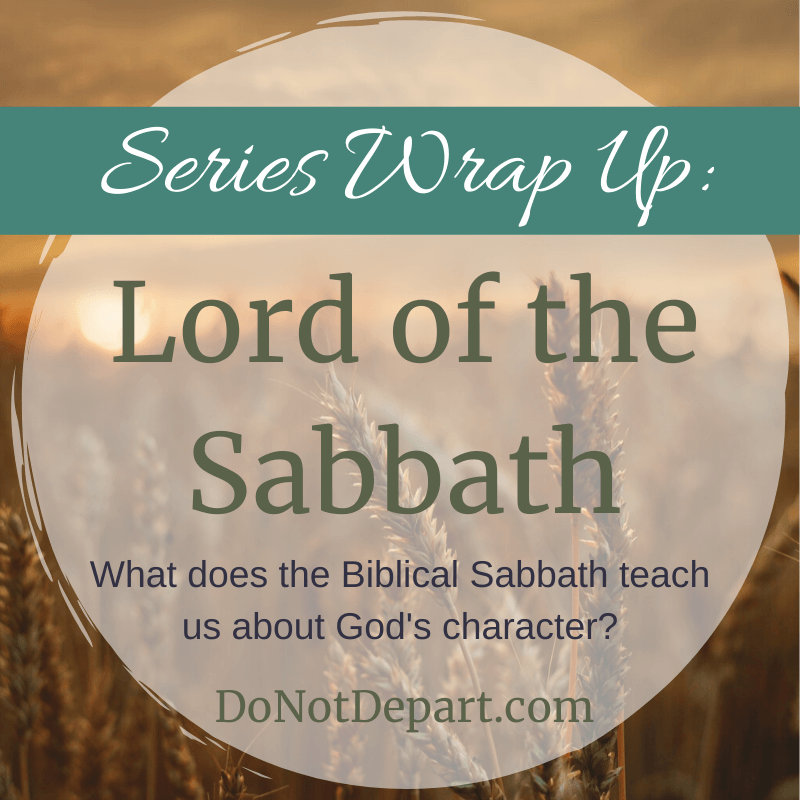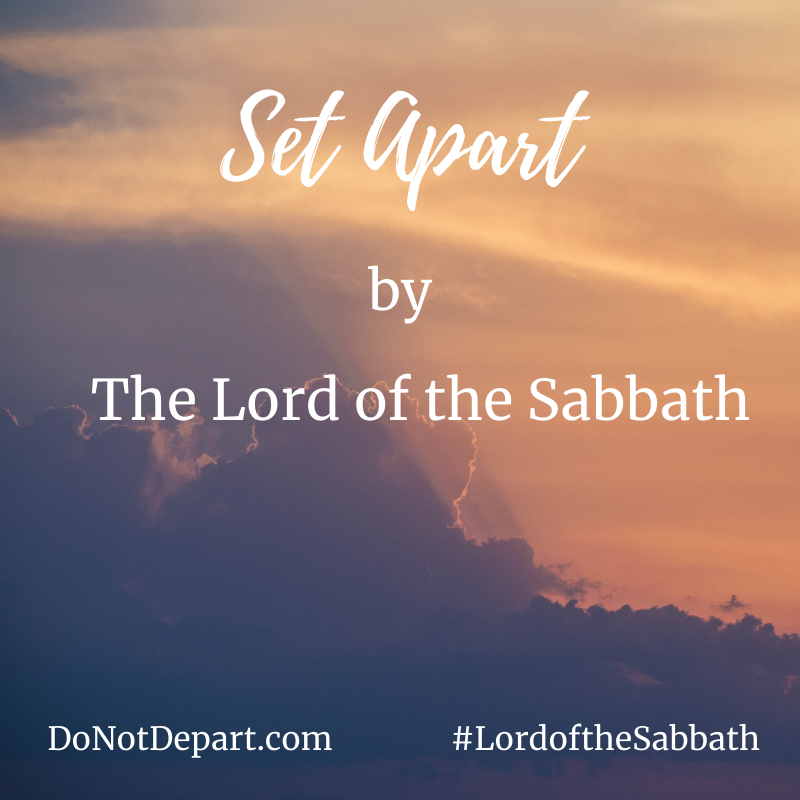Today’s post covers the last verse of Psalm 145 and is our series wrap up for our study, Great Is the Lord.
My youngest child is still in the process of learning what to say and what not to say. We discuss questions like, “What words build others up? What’s necessary to say? What might sound like complaining? Am I praising and glorifying God with my mouth?”
She makes the job easy on me because she’s a sensitive, caring girl. After all, good words come out easiest when the heart and mouth agree.
I love the last verse in Psalm 145:
My mouth will speak the praise of the LORD, and let all flesh bless his holy name forever and ever. (Psalm 145:21)
The eloquent words of praise in Psalm 145 came from David, a “man after God’s own heart.” (Acts 13:22)
Because his heart was in the right place, his words flowed suit. (Matthew 12:34)
We Can “Speak the Praise of the Lord”
My goal is to agree with David and make sure my mouth speaks God’s praise! I will join with “all flesh” and “bless His holy name forever and ever.”
As Thanksgiving approaches and I gather with family and friends to count my blessings, I know I’ll have the perfect opportunity to praise God’s holy name with a heart full of gratitude.
And I pray this: after the dinner is over, the dishes are washed, the family drives away, and life goes back to “normal,” I’ll continue to praise Him… come what may.

Series Wrap Up: How We Can Continue to Focus on His Greatness
Yes, I desire to Praise Him, Daily and Forever. When I create a daily habit of praise, praising God for eternity will take care of itself. Consistency in time spent praising God may not win me an award, but it is sure to be rewarding!
Like Jaime wrote about in her post. Great is the Lord from Generation to Generation, I will tell the next generation whom I worship and why! “Holidays are a time when families gather to pass on stories and traditions about who we are, why we are here, and most importantly, who we worship.”
I’ll try to be like Lisa, who reminded us to look for the goodness of God so that we can share it with others. In Is God Good to YOU? Lisa said, “Be intentional. Look closer. Pay attention to the good things that God is doing in our lives.We can’t share about God’s goodness if we don’t see it.” (I love how her post gave us three ways to find the good in God!)
I plan to focus on the fact that the is No Greater Kingdom than the kingdom of God! Like Cheli said in her post, No Greater Kingdom, “There is no other God like our God. His kingdom is everlasting, faithful, grace-giving, and abounding in blessings. The qualities of the kingdom originate with the King. Great is the Lord! May our praise and gratitude magnify Him and His kingdom.”
I’ll also remember that the Lord is Near, like Jennifer reminded us. She said, “God is responsive. He hears His people’s cries and responds to their needs. This is His righteousness and kindness in action. Psalm 145 is David’s great expression of praise, extolling who God is and what He has done. The Lord is near. Let’s lift our voices in praise.”
Will you be remembering and focusing on those things with me? I pray that as God moves in our hearts to respond to His greatness, a powerful praise will result that changes lives: ours and others— all for His glory!
How are you remembering that Great Is the Lord?
Tell us in the comments or over in our Facebook community.
Blessings to you and yours, this Thanksgiving and always!
Ali

